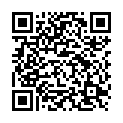|
|
|
| Module code: MAM-9.K |
|
10V (10 hours per week) |
|
12 |
| Semester: 9 |
| Mandatory course: yes |
Language of instruction:
German |
Assessment:
Student presentation
[updated 12.09.2004]
|
MAM-9.K Engineering and Management, Master, ASPO 01.10.2004
, semester 9, mandatory course
|
150 class hours (= 112.5 clock hours) over a 15-week period.
The total student study time is 360 hours (equivalent to 12 ECTS credits).
There are therefore 247.5 hours available for class preparation and follow-up work and exam preparation.
|
Recommended prerequisites (modules):
None.
|
Recommended as prerequisite for:
|
Module coordinator:
Prof. Dr. Bernd Heidemann |
Lecturer: Prof. Dr. Bernd Heidemann
[updated 06.09.2004]
|
Learning outcomes:
This course teaches students the systematic methodologies and computational techniques necessary for developing and designing innovative products and provides them with an opportunity to apply 2hat they have learned in a real interdisciplinary project.
[updated 12.09.2004]
|
Module content:
Introduction: Technical products their utility.
The useful-life phase and product lifetime.
The main stages of the product development process according to VDI guideline 2221 and the underlying methodologies.
- Task definition and compilation of requirements list
- Determination of overall function; developing functional structure from subfunctions
- Identifying subfunction solutions: creativity techniques; patent searching and analysis; systematic analysis (transition from physical effect to operating principle, variational techniques)
- Morphology and choice of solution; systematic variation and combination of the partial solutions to yield concept variants
- Generation of final concept variants: computational methods and simulation techniques
- Assessment of concept variants using technical and economic criteria
- The main design phase: General description and general strategy
- Systematic design: Fundamental design operations; variational design techniques; basic principles; product-independent and product-independent design strategies; evaluation and decision making
Contacting companies; obtaining a project; method-based development of a project-specific work schedule
Clarification of project task; compilation and assessment of potential solutions using the methods of systematic product development; modelling of most cost-effective solution and design optimization; manufacturing drawings and tolerance analyses; presentation of results
[updated 12.09.2004]
|
Teaching methods/Media:
Accompanying course notes, exercises and problems, project-specific materials
[updated 12.09.2004]
|
Recommended or required reading:
Ehrlenspiel: Integrierte Produktentwicklung
Koller: Konstruktionslehre für den Maschinenbau
Pahl/Beitz: Konstruktionslehre
[updated 12.09.2004]
|


